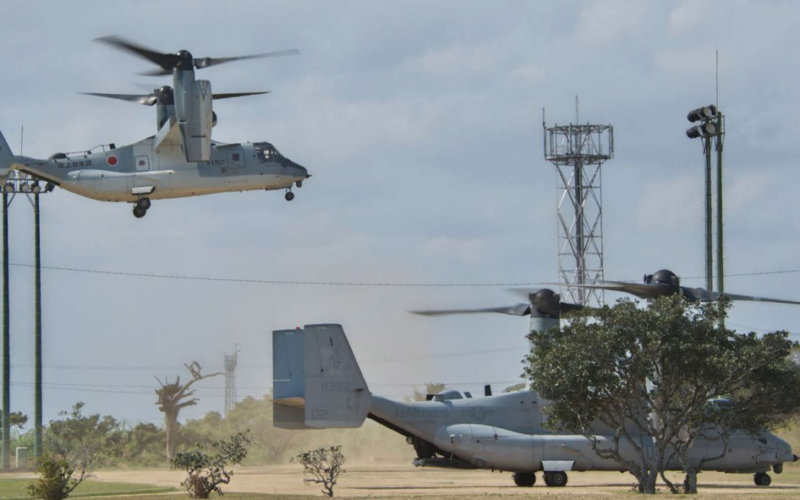In a move prompted by heightened local apprehensions surrounding the safety of the tilt-rotor Osprey aircraft, Japan has formally requested the United States military to temporarily suspend flights. This plea comes in the wake of a tragic crash that occurred just one day prior, reigniting concerns among the Japanese populace about the safety and reliability of this particular type of military aircraft.
The incident, which resulted in a fatality, has intensified scrutiny on the Osprey’s operational safety within Japanese territories. The aircraft’s unique tilt-rotor design, allowing it to take off and land vertically like a helicopter while flying horizontally like an airplane, has been a subject of contention since its introduction to the U.S. military’s fleet.
Japanese authorities are keen on ensuring the highest safety standards for military operations within their borders, and the recent crash has underscored the necessity of a thorough reassessment of the Osprey’s deployment in the region. The request for a temporary suspension of flights serves as a precautionary measure while investigations into the cause of the crash are underway.
It is noteworthy that the Japanese government has communicated this request to the U.S. military through diplomatic channels. This diplomatic approach underscores the gravity of the situation and the importance of maintaining a collaborative and transparent relationship between the two nations.
The Osprey has a history of controversy, with previous incidents in different parts of the world raising questions about its safety record. However, it remains a crucial asset in the U.S. military’s fleet due to its versatility and unique capabilities. The aircraft has been deployed in various operations, including humanitarian missions, and its importance in military strategies cannot be overstated.
As the investigation into the recent crash unfolds, Japanese citizens and local authorities are closely monitoring developments. The decision to temporarily halt Osprey flights reflects the Japanese government’s commitment to prioritizing the safety and well-being of its citizens, as well as its dedication to maintaining open communication with its international allies.
In conclusion, the call for a temporary suspension of U.S. Osprey flights in Japan underscores the delicate balance between military cooperation and ensuring the safety of local populations. The outcome of the investigation will likely have a lasting impact on the deployment of the Osprey in the region and may influence future collaborations between the United States and Japan in the realm of military operations.








